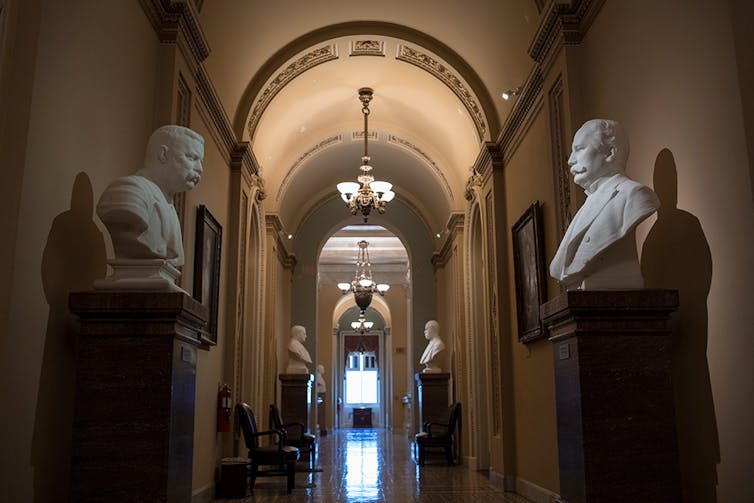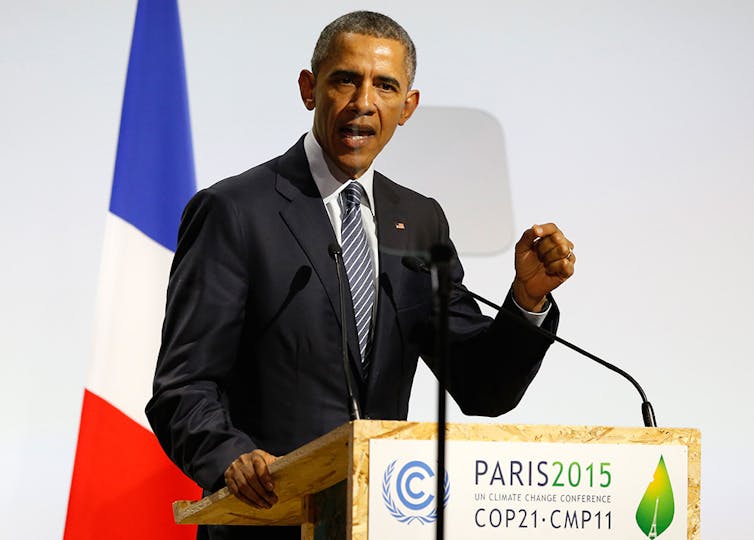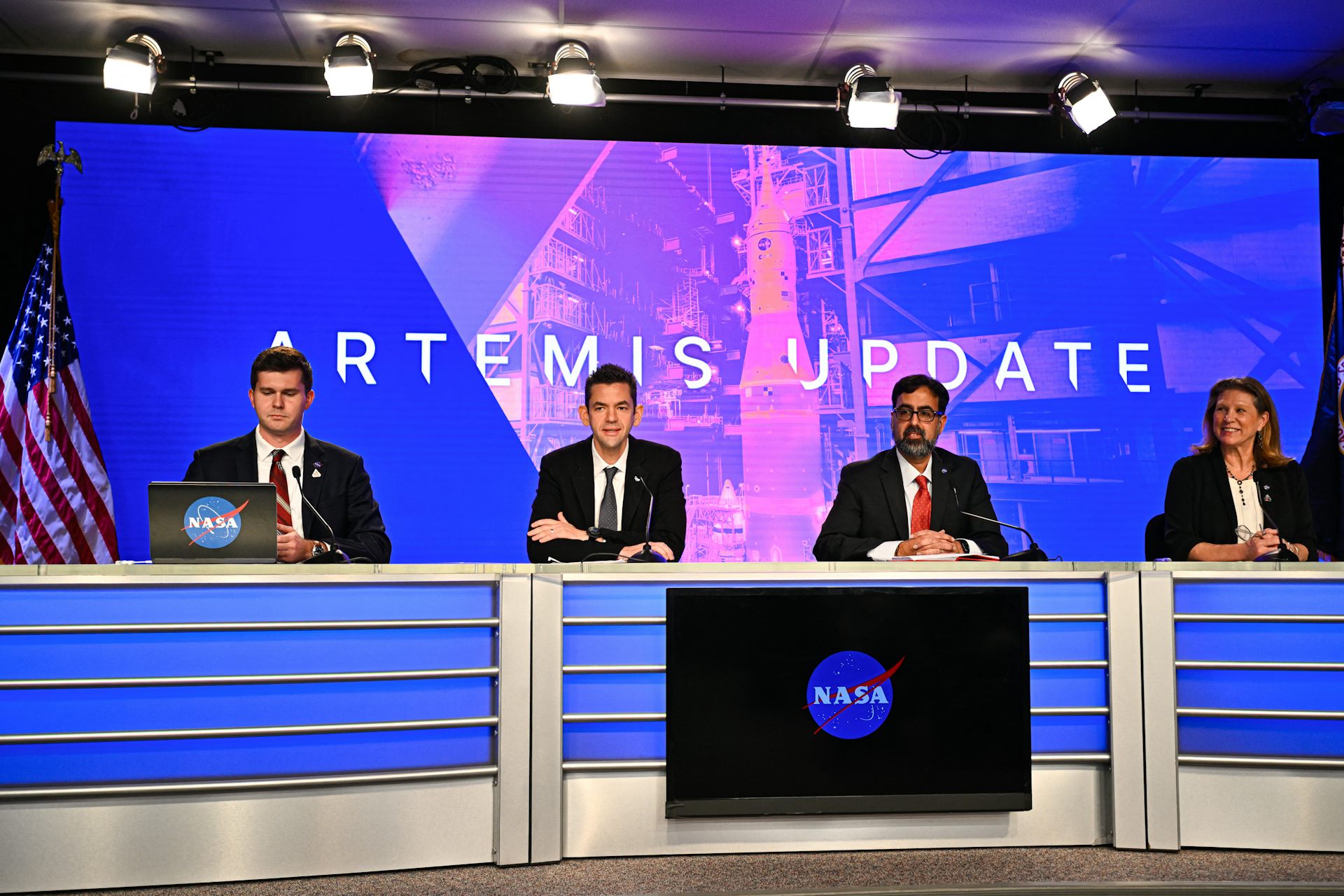Successful businesses need proactive leadership – and so does Congress
Research shows the ability to act strategically for the long term is a key component of successful leadership – and sorely lacking in Congress these days.

Imagine you’re speeding along on a highway. Suddenly, the traffic ahead of you slows, forcing you to hit the breaks. Eventually you arrive at the source of the bottleneck: a mattress lying in the right lane. One by one, your fellow motorists simply crept around it. No one stopped to move it off the road to relieve the congestion.
Why would so many people fail to take action and (easily) fix the problem that slowed traffic to a crawl?
People – whether motorists, business leaders or lawmakers – are simply not very proactive. By that we mean humans have a tendency to keep doing what they’ve been doing, maintaining the status quo rather than breaking the flow and creating a better future. In the mattress example, it means driving around the obstruction rather than removing it, allowing the problem to continue indefinitely.
As researchers of organization behavior and leadership, we have long studied the nature of proactive behavior and how it helps people perform better at their jobs. Failing to behave proactively can be consequential as well, often negatively. For an apt illustration, look no further than the three-day federal shutdown that resulted from Congress’ failure to pass a budget.

What it really means to be proactive
People commonly think being proactive means simply starting sooner rather than later, not procrastinating, or taking initiative to get work done.
But it is far more than that. Your behavior is proactive when:
you choose it yourself rather than comply with external demands
you execute strategically more than mindlessly
you are future-focused rather than anchored in the present or past
your intention is to change something for the better, thus to create a better future.
A prime example is Elon Musk, whose steady stream of companies from PayPal to Tesla and SpaceX reveals his constant ability to act strategically and long term – very long term, in the case of his plan to colonize Mars.
Proactivity begins with recognizing that a current trajectory – your own, your team’s, your company’s – is not good enough, or downright bad, and deciding to make a course correction. More concretely, proactivity means solving or preventing problems and identifying and capturing opportunities, en route to a future that is better than if you had not changed course.
Our research suggests that truly proactive leadership is a rare bird. In one study, for example, we interviewed 75 chief executive officers in several countries including the U.S. and asked them to tell us their work goals. Of the over 2,000 goals they mentioned, the vast majority were business-as-usual, maintenance goals such as “keeping customers,” “surviving” and “holding onto good employees.” Only a very few, such as “building a new factory,” “finding a new international partner” and “being a leader in changing how the marketplace works” were notably proactive in ways that could dramatically change their companies’ trajectories.

Proactivity and success
We conducted several studies to better understand the connection between being proactive and performing successfully.
In the first one, we asked 148 business grad students at a single school with significant full-time work experience to fill out a survey intended to measure their behavioral tendencies. The survey listed 17 different behaviors, such as “If I see something I don’t like, I fix it,” “I am always looking for better ways to do things,” “I love to challenge the status quo” and “If I believe in an idea, no obstacle will prevent me from making it happen,” and we asked the students to mark how strongly they agreed with each statement in terms of how they work, from 1 to 7.
We then compared scores with actual achievements based on participants’ application material, including resumes and essays. Those who scored higher on the proactivity scale had more impactful accomplishments in their work and personal lives. Moreover, we asked them to list four to eight peers among their classmates whom they predicted would become transformational leaders in their future careers. Proactivity rankings correlated with the number of peer nominations.
Our second study involved a sample of 131 real estate agents who completed our proactivity survey. Using archival records, we found that agents that scored higher on the scale sold more houses, earned greater commission income and brought in more listings than their peers.
In a third study, we asked 156 managers at a Puerto Rican financial services firm to fill out our survey. Their bosses then completed a separate survey rating those managers’ leadership behaviors, such as charisma and inspirational speaking. Those ranked most proactive received higher ratings from their bosses, while low-scorers were near the bottom.
Other studies have linked proactive behavior to better job performance, a tendency to exceed expectations, effective stress management and more entrepreneurial behavior.
A caveat to all this is that being proactive – like starting a new business – can be risky and even backfire. But the evidence shows clearly that the likely gains far outweigh the potential costs.

Not behaving proactively has costs too
So what does all this mean for Congress?
The federal government shut down over the weekend because lawmakers and President Donald Trump couldn’t agree on a budget, something Congress has long struggled with. Identifying the country’s most vital priorities and reaching agreements with all relevant parties about how best to move forward is a fundamental proactive behavior.
Whatever the merits of the competing arguments right now over immigration or funding priorities that prompted the shutdown, acting proactively means getting results, and that often requires coalitions and compromise. Without it, government will continue to be plagued by potential shutdowns, brinkmanship and a trajectory toward worse rather than better futures.
Lawmakers have shown this tendency further by refusing to act to fix predictable future problems, such as climate change or the Russian government’s hacking of U.S. elections – both of which require proactive behavior to resolve for the sake of our future.
Surveys of Americans across the political spectrum have shown that they respect leaders who engage in proactive ways on the problems facing their country. Perhaps that could help convince lawmakers and presidents that it’s in their own self-interest to do so.
Sadly, neglecting the future is our default. Proactivity requires all-too-rare strategic forethought and sustained, constructive action to avoid the worst and create the best possible futures.
As Irish playwright George Bernard Shaw perhaps put it best: “We are made wise not by a recollection of our past but by a responsibility for our future.” Imagine the benefits if more of our leaders would think and act through such a forward-looking lens.
The authors do not work for, consult, own shares in or receive funding from any company or organisation that would benefit from this article, and have disclosed no relevant affiliations beyond their academic appointment.
Read These Next
Hezbollah − degraded, weakened but not yet disarmed − destabilizes Lebanon once again
Hezbollah’s entry into the current war followed the killing of Ayatollah Ali Khamenei. The group has…
Congress once fought to limit a president’s war powers − more than 50 years later, its successors ar
At the tail end of the Vietnam War, Congress engaged in a breathtaking act of legislative assertion,…
Housing First helps people find permanent homes in Detroit − but HUD plans to divert funds to short-
Detroit’s homelessness response system could lose millions of dollars in federal funding for permanent…






